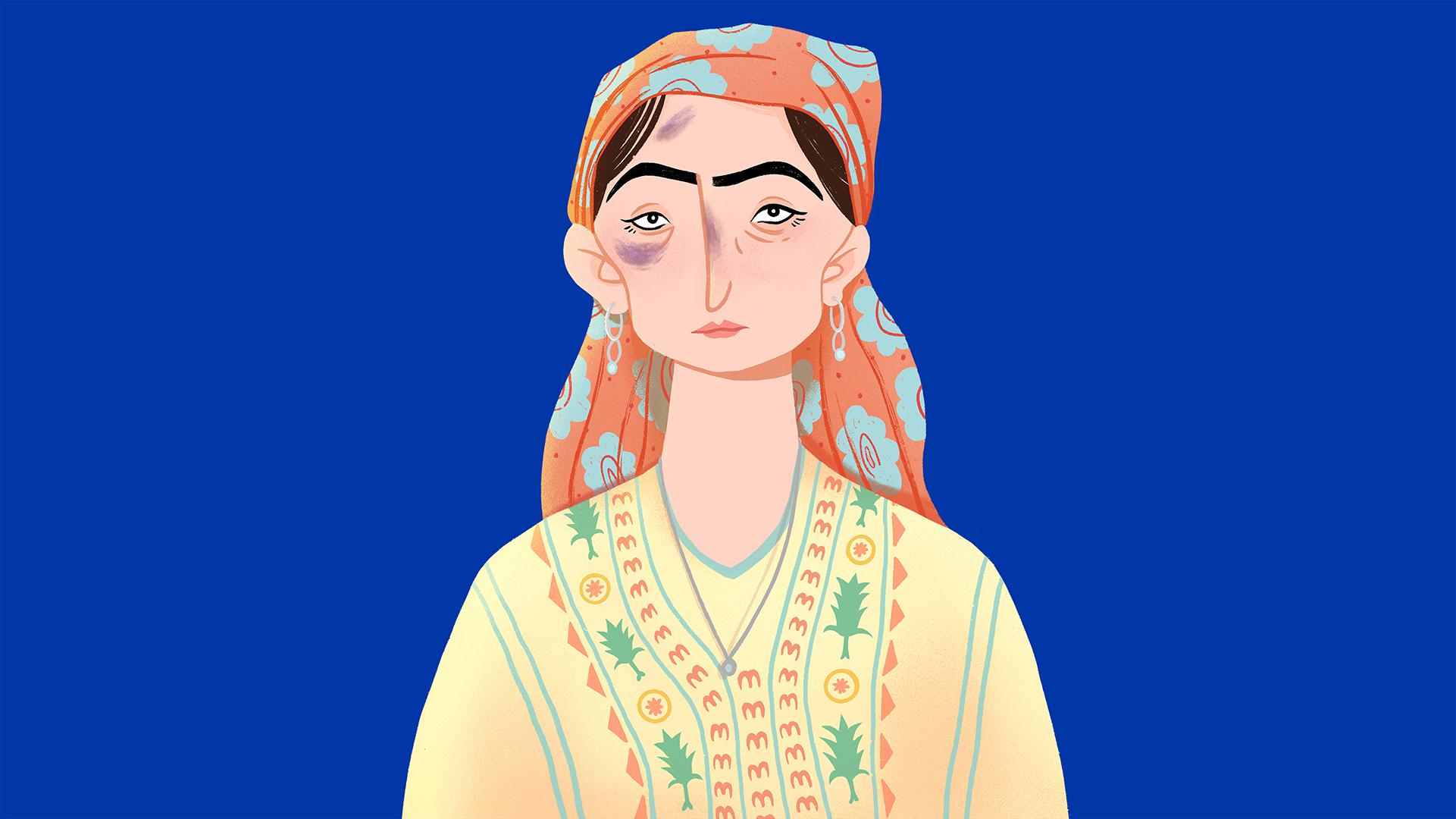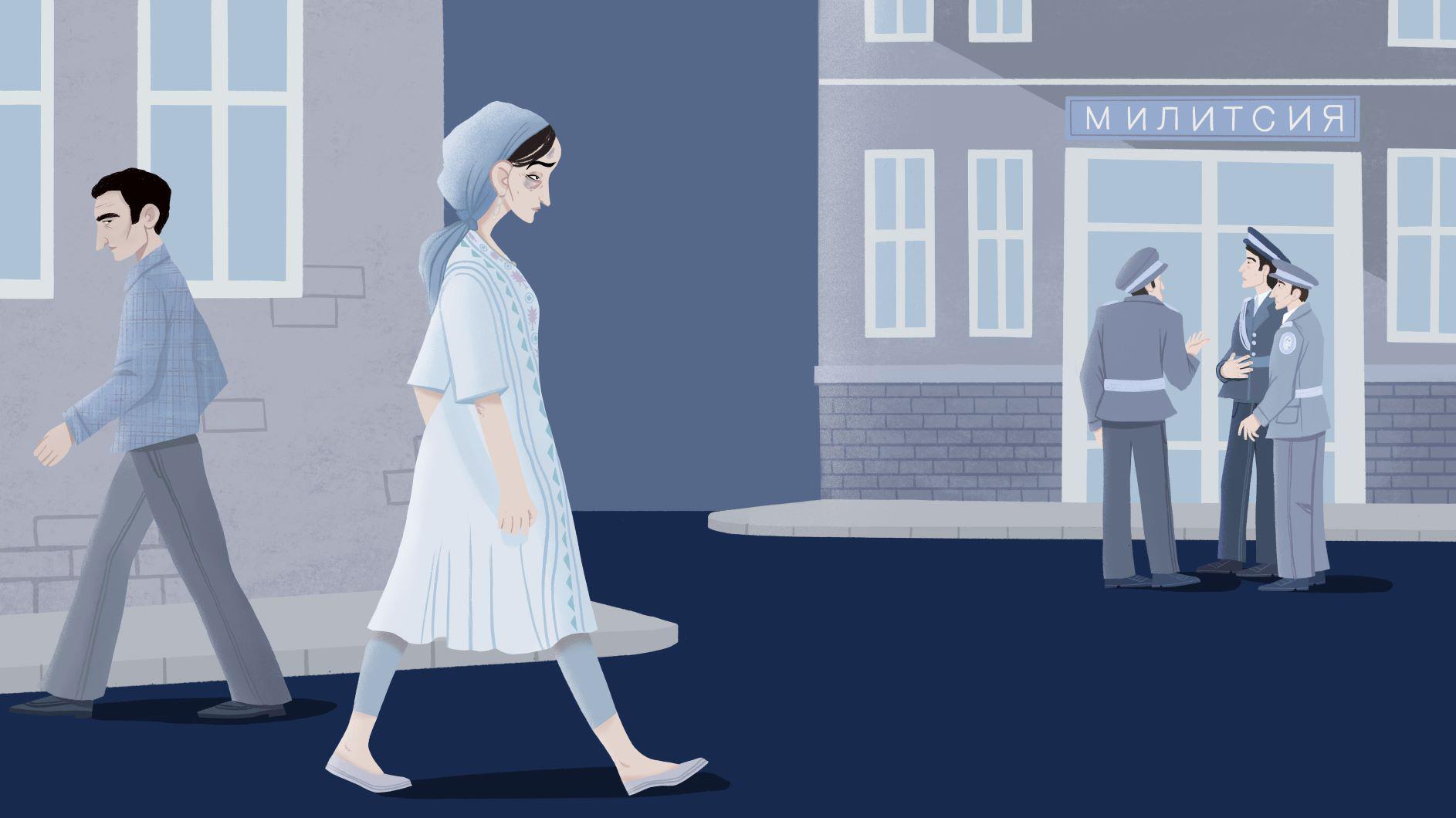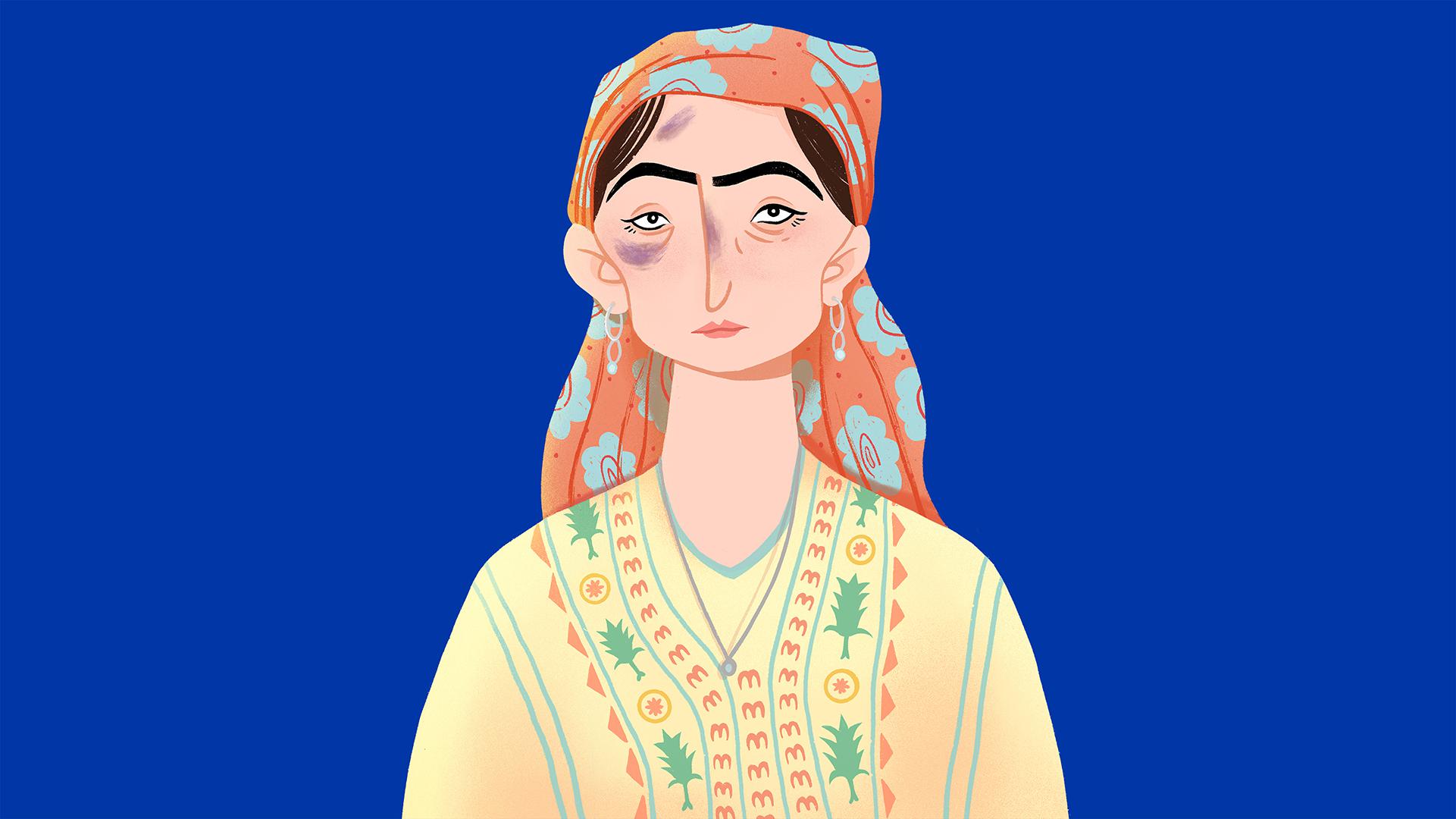Tajikistan – HRW report on domestic violence
Tajikistan: Barriers to Aid for Domestic Violence Victims
Gaps in Government Response Put Women’s Lives at Risk
(Warsaw) – Tajikistan’s government takes little action to investigate or prosecute domestic violence cases and is doing far too little to help survivors, Human Rights Watch said in a report released today. Despite progress in some areas, Tajik law does not criminalize domestic violence, and women who experience abuse lack adequate protection and access to shelter and other services.

“He Often Beat Me Up”
Senior researcher Steve Swerdlow talks about domestic violence in Tajikistan, and how oftentimes no one – from the police, to judges, to their own families – will help victims.
The 93-page report, “‘Violence with Every Step’: Weak State Response to Domestic Violence in Tajikistan,”documents obstacles to help and justice for domestic abuse survivors. Despite laws that guarantee survivors’ rights to protection and social services, Human Rights Watch found ongoing gaps in police and judicial responses to domestic violence, including refusing to investigate complaints, failing to issue or enforce protection orders, and treating domestic violence as a minor offense. Human Rights Watch also released a video with domestic violence survivors describing the hurdles they faced when trying to get protection.
“The response to domestic violence victims in Tajikistan often leaves them in danger,” said Steve Swerdlow, senior Central Asia researcher at Human Rights Watch. “Officials are ignoring their obligations to enforce Tajikistan’s law on domestic violence.”
A 2013 law on preventing domestic violence led to important measures, such as awareness-raising campaigns and staffing of some police stations with specially trained female police inspectors. But survivors, lawyers, and service providers report that police often ignore the law, and that victims lack adequate protection from abuse and access to shelters.
Underreporting and insufficient data collection make it difficult to assess the scale of domestic violence in Tajikistan, but local and international groups report that it is commonplace. In 2016, United Nations Women, the UN agency that champions gender equality, reported that domestic abuse affects at least one in five women and girls throughout the country, drawing on government statistics. In November 2018, the UN committee that oversees implementation of the Convention on the Elimination of all Forms of Discrimination against Women expressed concern that domestic violence in Tajikistan is “widespread but underreported” and that, along with marital rape and sexual assault, it is not criminalized.
Human Rights Watch interviewed more than 80 people, including 55 female domestic violence survivors from the country. Human Rights Watch also interviewed police, lawyers, shelter and crisis center staff members, government officials, service providers, and representatives of the UN, the Organization for Security and Co-operation in Europe, and other international organizations with projects on violence against women.
The Tajik government had not responded to requests for information regarding the implementation of the 2013 domestic violence law or provided any comment on the findings.
Women interviewed reported enduring years of abuse, usually by husbands or partners, including rape, stabbing, strangulation, and beatings with sharp and heavy objects such as a shovel, a fireplace poker, an iron, and a chair. They said abusers deprived them of food, clothing, and access to toilets or the kitchen. Women said the violence caused injuries, including internal bleeding and damage to vital organs, concussions, skull fractures, broken jaws, and severe bruises, as well as symptoms of trauma and emotional distress.
“After he beat me, I narrowly escaped and went to the city prosecutor’s office covered in blood,” said a 28-year-old woman who endured four years of spousal abuse and rape. But as she tried to report the violence, she said the prosecutor interrupted, saying, “Aren’t you yourself to blame?” He called her husband, exposing her whereabouts, and told her, “Everything will work out fine. Go home.”
Tajikistan’s domestic violence law allows police and courts to issue temporary or long-term protection orders to prohibit abuse or bar contact between the abuser and the victim. However, many survivors said that the police never informed them about protection orders or failed to enforce the orders or penalize abusers who violated them. Abusers are rarely prosecuted or brought to justice, Human Rights Watch found.
“Those responsible for domestic violence should be brought to justice,” Swerdlow said. “Without accountability, abusers are sent a message that domestic violence is acceptable.”
Survivors also face a dire lack of services. Tajikistan has only four specialized shelters for domestic violence survivors for a population of nearly nine million people, far short of the minimum called for in international standards. Nongovernmental groups provide most of the available services. Although Tajikistan has a network of state-supported women’s resource centers throughout the country, qualified psychosocial and mental health counselors are virtually nonexistent, and there is almost no legal assistance for survivors, including for property division following divorce.
Survivors and activists said that even in women’s resource centers and shelters, most available counseling focuses on reconciling survivors with their abusers rather than ensuring protection, services, and accountability for serious ongoing violence. Women said they were often encouraged to return to abusive relationships and continued to experience violence.
Other barriers include financial dependence on abusers and fear of losing custody of their children. Many women said they remained in abusive relationships or tried to reconcile with abusive husbands who had abandoned them because they and their children would otherwise go hungry.
In Tajikistan, where wives usually live with their in-laws, housing options, even after divorce, are extremely limited. A provision of Tajik law known as vseleniiemeans that courts often order that a divorced woman and her children be allocated a portion of the home of her former in-laws and husband in which to reside. Vseleniie has placed many women and survivors of abuse in even more precarious situations where they are exposed to continuing risks of violence.
Other harmful practices that can heighten the risk of domestic violence include polygamy and unregistered, forced, and child marriages, even though the government has raised the marriage age to 18 and taken steps to ensure that couples register their marriages with the state.
The Tajik government should amend the domestic violence law to explicitly criminalize domestic violence, Human Rights Watch said. It should ensure that police, prosecutors, and judges issue and enforce protection orders and investigate and prosecute domestic violence. Officials who fail to do so should be disciplined.
The government should also support shelter, health, psychosocial, and legal services for survivors, including by expanding legal aid and domestic violence shelters. The government should amend the vseleniie provision and develop longer-term housing options for vulnerable segments of the population, including domestic violence survivors.
Tajikistan’s international partners, including international aid agencies, should press the Tajik government to criminalize domestic violence. They should also offer further assistance for shelters, affordable longer-term housing, and other services for victims of domestic violence.
“The Tajikistan authorities’ priority should be protecting women from abuse, not pressuring them to return to unsafe environments,” Swerdlow said. “Tajikistan should ensure that domestic violence is investigated and prosecuted, and that there are shelters and other services available to keep women safe.”
https://www.hrw.org/news/2019/09/19/tajikistan-barriers-aid-domestic-violence-victims



